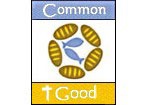Members of Opus Dei, the "Personal Prelature" founded by Spanish Blessed Josemaria Escriva, describe how participation in "the Work" leads them to a deeper spiritual life. A combination of daily devotions, regular meetings, retreats, and study is an effective road to maturity for those involved. Opus Dei members also seek to build the Kingdom of God in the midst of their daily circumstances—family, professional, neighborhood—taking to heart the impetus given the laity by the Second Vatican Council.
Before 1985, Dale O’Leary felt like she didn’t have anyone else looking out for her spiritual growth. Catholic for 20 years, O’Leary joined the Church’s personal prelature of Opus Dei that year. Her faith has grown considerably because of it.
"This is where God is going to feed me," O’Leary said. "I think everybody needs spiritual direction. They need to grow spiritually."
O’Leary, 59, a Rhode Island-based author and speaker, found a font of spiritual support in Opus Dei. More than 80,000 Catholics around the world turn to the prelature for the same growth. Their shared goal is to find God in everyday life.
Parishes without geographical boundaries, prelatures are designed to carry out pastoral tasks. In the case of Opus Dei, priests and lay members spread news of the Christian message.
With the full name, the Prelature of the Holy Cross and Opus Dei, the organization was founded in 1928 by Blessed Josemaria Escriva. It was erected by John Paul II as a personal prelature of international scope in 1982, and is headed by Bishop Javier Echevarria.
The combination of parishes and prelatures works for O’Leary, especially when considering Opus Dei. "People need both," she said. "A parish is a geographical place for worship and sacraments. In the Catholic Church, there are all these different types of individual spirituality."
Some are Carmelites, some are into the Charismatic renewal, but none are in competition.
Spread over 60 countries, Opus Dei is a Divine inspiration, something God wanted at this time in the Church’s life, said Father C. John McCloskey III, STD, director of the Catholic Information Center, Washington, D.C. and priest in the Opus Dei prelature.
"It’s unheard of for a Spanish priest to come up with this idea that 72 years later is still going strong," McCloskey said. "Catholics see it as a work of grace. Secularly, you could say the guy had a good idea."
The idea is to know the world and love it for all it can be. Every member of Opus Dei wants to spread the message that everyone who is baptized is called to seek holiness and to make the Gospel known.
It’s an "obligation to sanctify yourself," the Blessed Escriva said. "To everyone, without exception, our Lord said: ‘Be perfect as my heavenly Father is perfect.’"
Priests such as McCloskey are important in Opus Dei, but it’s lay members like O’Leary who bring the message into homes and workplaces with the examples they set.
O’Leary is aware of that responsibility. "It’s a way of changing the world while still being in it," she said.
But it requires education as well as devotion. Besides daily duties of attending mass and praying, O’Leary meets weekly with nine other Opus Dei members in "targeted" discussions about their faith. There’s also a three-day silent retreat, a five-day theology course, and more.
"The goal," O’Leary said, "is that every member of Opus Dei will receive the theology that a priest would receive," she said.
That would take many years, she added. And U.S. members probably don’t have opportunities for the intense study available to members in other countries.
Members also do their own readings, study the Catechism and seek to learn constantly. Opus Dei isn’t for everyone, she added. Even for members, the study of theology requires a major commitment. And learning, no matter what pace, is crucial.
"When theology isn’t laid on a firm foundation," O’Leary said, "it can fall apart."
Copyright © 2000 Michael Clark
Fr. C. John McCloskey III, STD, is a priest of the prelature of Opus Dei and the Director of the Catholic Information Center of the Archdiocese of Washington, D.C. For more information on the work of the Prelature of the Holy Cross and Opus Dei, visit their Web site at http://www.opusdei.org.
Michael Clark, a Feature Writer for Christianity.com, is an award-winning journalist and author of Reason to Believe (Avon, 1997), a book that chronicles the growth in belief in psychics and paranormal phenomena. A graduate of James Madison University in Harrisonburg, Virginia, Michael and his wife Ruth Ann are the proud parents of three daughters.


